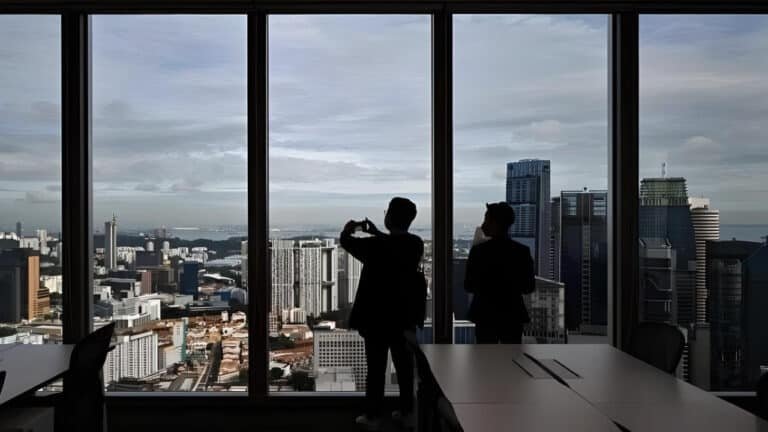Singapore is the hub for property investment these days and rightly so, because the returns are quite impressive. Those that indulged themselves in the Singaporean real estate market back in the mid 2000 have been able to triple their wealth in the past decade. But for you to step into this industry there are a couple of things that you should know. Some of these will be discussed in this blog, but please reach out to a real estate agent who is experienced in foreign buying and selling for details.
At Owee Commercial Real Estate, we provide international High-net-worth individuals a one-stop service for property investment and acquiring Singapore commercial real estate. Read moreNic Ee, Executive Director
Property Types in Singapore
Property in Singapore can broadly be divided into three main types: residential, industrial and commercial. These are further divided into subcategories. Being a foreigner, you are not permitted to invest in some of these categories.
In residential property, you’ll find HDBs, landed houses, private apartments and condominiums, and executive condominiums. In order to be eligible for HDB housing, one must be a local, i.e. someone who is a citizen or permanent resident.
For Singaporeans, Executive condos are also offered at subsidized rates; permanent residents are eligible to buy Executive condos five years after the building was completed.
As a foreigner, you will never be able to own a HDB home in Singapore. Executive condominiums can be purchased after a period of 10 years from the date of completion of the project.
For landed houses, you need government approval before purchasing; you will be allowed if your contribution to the country’s economy is adequate.
Private apartments and condominiums are not subject to any restrictions. The good news is that you are free to buy as many of these as you desire. If you are investing in them, however, you must ensure that they are located in good neighborhoods. This is something that your chosen real estate agent can assist you with.
Stamp Duties
Stamp duties are taxes levied on property transactions in Singapore. As a foreigner buying a property in Singapore, you would need to know your obligations before booking a property. Here are the different types of stamp duties a foreign investor needs to know.
BSD – Buyer’s Stamp duty
Stamp duty can be regarded as a tax which you pay when you purchase or lease property ; you are required to pay it within 14 days from the date on the agreement if it is signed in Singapore. If it is signed elsewhere, the time period is 30 days.
Buyer’s Stamp Duty or the BSD is the tax amount which you pay when the Sale and Purchase agreement or the Option to Purchase is accepted, both of which are produced whenever you sell or buy property. The seller pays the Seller’ Stamp Duty, only if the property is sold within three years from the purchase date. When you pay the first $180,000, you pay 1% as of the stamp duty amount. For the next $180,000 amount, it is 2%, and for later payments, it is 3% on the amount that remains.
With effect from 20th February 2018, buyers would have to pay Buyer’s Stamp duty of 4% instead of 3% for the value above $1 million. That is, if the purchase price is $1.5 million, the value above $1 million, which is $500,000 would be subjected to 4% or $20,000 stamp duty instead of 3% or $15,000.
ABSD – Additional Buyer’s Stamp duty
The Additional Buyer’s Stamp Duty or the ABSD was first introduced on 7 December 2011 to avoid property bubbles in Singapore. ABSD is paid on top of the Buyer’s Stamp Duty or the BSD. Both of these are determined using either the purchase price or the property’s market value whichever is higher. The buyer’s profile, type, and other residential properties owned by them in Singapore also contribute to the final ABSD amount. As a foreigner (non PR), you are subjected to a flat 15% ABSD regardless of the number of properties you already own. Please note that ABSD only applies to residential property, and not to commercial properties.
SSD- Seller’s Stamp Duty
The Seller Stamp Duty or SSD was introduced on 19 Feb 2010 to ensure a stable and sustainable property market. The SSD has to be paid on all residential lands and properties that have been bought on or after Feb 20, 2010. It applies only if the sale is conducted within the holding period. The SSD rates depend on the purchase date and disposal or sale date.
The rates for SSD have been revised multiple times in the past few years. If you bought property on or after 10th March 2017, then you have to pay an SSD of 12% on the overall sale price or market value if the holding period is 1 year. If the holding period is between 1 and 2 years, then you pay 8% SSD. For holding periods between 2 and 3 years, the applicable rate is 4%. And for greater holding periods, you don’t have to pay any SSD.
SSD may be exempted under certain cases. . These include the property being acquired by the Singaporean government under the Land Acquisitions Act, the property being sold as a result of bankruptcy or involuntarily pack-up or the property being sold by foreigners under the Residential Properties Act.
ACD – Additional Conveyance Duty
The payment of the Additional Conveyance Duty or ACD came into effect from Mar 11, 2017 in an attempt to eliminate stamp duty differences that exist.
Before ACD was introduced, BSD, ABSD and SSD could be avoided in indirect transactions, meaning a company holds the property, and the seller is selling company shares and not the property itself. In such a case, only 0.2% stamp duty was applicable to share transfers, so the savings were significant.
The ACD applies on certain share transfers when the entities under consideration have Singapore residential properties as their primary tangible assets. Both buyers and sellers are required to pay ACD, referred to as ACDB and ACDS, respectively. The rates are based on the market value of the property under consideration.
The first part of the ACDB is paid exactly as BSD, already highlighted above. The second part is paid at a rate of 15%. The rates for ACDS are 12%.
Taxation
As a foreign investor, you are required to pay taxes on the rental income which you generate from Singaporean property. Since you are a non resident, the tax rate on your rental income is 22%. You also have to pay annual property tax at 10% of the property’s annual value if you rent it out. For personal use, tax rates are lower at 4%.
If you sell the property, you usually don’t have to pay any tax on the gain, as it is treated as capital gain. However, if the primary aim is to earn profits, then the gains would be treated as taxable income. Your motive is assessed by various factors such as transaction frequency, reasons for selling the property, financial means, and holding period.
Have A Question?
The team at CENTURY 21 Property Agent Singapore has been in the real estate business since 2001, assisting foreign investors since then. Please reach out to us for further details.
Aut
[/et_pb_text][/et_pb_column][/et_pb_row][/et_pb_section]



